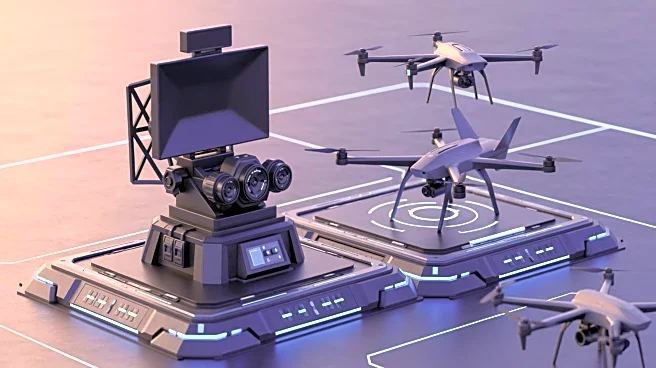What's Happening?
Belgium has requested assistance from Britain, France, and Germany to deploy anti-drone teams in response to increased incursions of unmanned aerial vehicles (UAVs) over critical infrastructure sites. The Belgian government, while not explicitly accusing
Moscow, suspects Russian involvement in these activities, which are seen as part of a broader hybrid warfare strategy. The National Air Security Center in Belgium is set to be fully operational by January 1, 2026, as part of efforts to bolster national security against such threats.
Why It's Important?
The deployment of anti-drone teams highlights the growing concern over UAVs being used as tools of hybrid warfare, potentially disrupting critical infrastructure and spreading insecurity. This situation underscores the need for international cooperation in addressing security threats that transcend national borders. The involvement of major European powers like Britain, France, and Germany signifies the seriousness of the threat and the importance of a coordinated response. The situation also reflects ongoing geopolitical tensions, particularly involving Russia and its alleged tactics to influence European security dynamics.
What's Next?
As Belgium's National Air Security Center becomes operational, further measures to counter UAV threats are expected. The international community may increase pressure on Russia to address these allegations, potentially affecting diplomatic relations. Additionally, advancements in anti-drone technology and strategies will likely be prioritized to safeguard critical infrastructure. The situation may also lead to broader discussions on the regulation and monitoring of drone activities within the European Union.
















